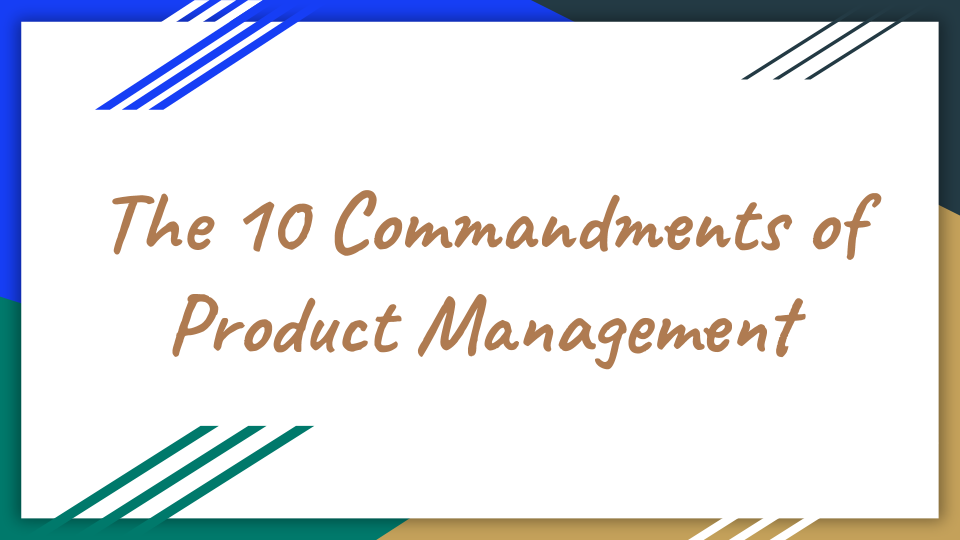
”It ain’t what you don’t know that gets you into trouble. It’s what you know for sure that just ain’t so.”
—A Wise Person
What we learn in school & must unlearn in business & life:
(1/10)
—A Wise Person
What we learn in school & must unlearn in business & life:
(1/10)
1/
In school:
If X is true then the opposite of X must be false.
In business & life:
If X is a good idea, the opposite of X can also be a good idea.
(h/t Rory Sutherland)
In school:
If X is true then the opposite of X must be false.
In business & life:
If X is a good idea, the opposite of X can also be a good idea.
(h/t Rory Sutherland)
2/
In school:
Teacher provides a rubric, you follow the rubric to a tee, you deserve an A.
In business & life:
Most of the time, there is no rubric.
In school:
Teacher provides a rubric, you follow the rubric to a tee, you deserve an A.
In business & life:
Most of the time, there is no rubric.
3/
In school:
If you do X amount of work, you'll get clear feedback in the form of a score/grade in N days.
In business & life:
The highest ROI work usually requires years of commitment without any clear reward.
And then, once the work has compounded enough, BIG payoff (maybe).
In school:
If you do X amount of work, you'll get clear feedback in the form of a score/grade in N days.
In business & life:
The highest ROI work usually requires years of commitment without any clear reward.
And then, once the work has compounded enough, BIG payoff (maybe).
4/
In school:
Usually you get one shot to do well. A small mistake can stay on your permanent record (e.g. making a couple of errors in the quant section of your GRE or similar).
In business & life:
Much greater tolerance for mistakes. Just be sure to avoid the fatal kind.
In school:
Usually you get one shot to do well. A small mistake can stay on your permanent record (e.g. making a couple of errors in the quant section of your GRE or similar).
In business & life:
Much greater tolerance for mistakes. Just be sure to avoid the fatal kind.
5/
In school:
Following rules is good. Breaking rules is bad and will get you in trouble.
In business & life:
There are no rules.
Creativity often arises from breaking supposed “rules”. Creativity enables outsized returns.
There *are* laws. Don’t break those.
In school:
Following rules is good. Breaking rules is bad and will get you in trouble.
In business & life:
There are no rules.
Creativity often arises from breaking supposed “rules”. Creativity enables outsized returns.
There *are* laws. Don’t break those.
6/
In school:
The main relationship to manage is the one with authority figures (teachers, the principal,...)
In business & life:
The main relationship to manage is with family, peers, friends,... Just fixating on authority figures will make many people unhappy (incl. yourself).
In school:
The main relationship to manage is the one with authority figures (teachers, the principal,...)
In business & life:
The main relationship to manage is with family, peers, friends,... Just fixating on authority figures will make many people unhappy (incl. yourself).
7/
In school:
Relationships are short-lived (a quarter, a semester, a year, etc.) Fine to be transactional.
In business & life:
You’ll run into the same people over & over again.
Try not to burn bridges for the small stuff.
Be respectful, trustworthy, a person of integrity.
In school:
Relationships are short-lived (a quarter, a semester, a year, etc.) Fine to be transactional.
In business & life:
You’ll run into the same people over & over again.
Try not to burn bridges for the small stuff.
Be respectful, trustworthy, a person of integrity.
8/
In school:
Education is viewed as a means to an end (need to get good grade→get into good college→get a good job→..)
In business & life:
There is no end to education.
Curiosity, love of learning, enjoying your chosen work is important for success in business & joy in life
In school:
Education is viewed as a means to an end (need to get good grade→get into good college→get a good job→..)
In business & life:
There is no end to education.
Curiosity, love of learning, enjoying your chosen work is important for success in business & joy in life
9/
In school:
Someone else structures your time (for the most part). You get rewarded for complying with that structure.
In business & life:
The higher the stakes, the looser the structure.
You have the freedom AND the responsibility to use your time well.
In school:
Someone else structures your time (for the most part). You get rewarded for complying with that structure.
In business & life:
The higher the stakes, the looser the structure.
You have the freedom AND the responsibility to use your time well.
10/
In school:
The words "simple" & "easy" are synonymous.
In business & life:
Simple is not always easy.
Life is simple & so is business.
But neither is easy.
In school:
The words "simple" & "easy" are synonymous.
In business & life:
Simple is not always easy.
Life is simple & so is business.
But neither is easy.
Back to the top of this thread:
https://twitter.com/shreyas/status/1338757977000398848
• • •
Missing some Tweet in this thread? You can try to
force a refresh



